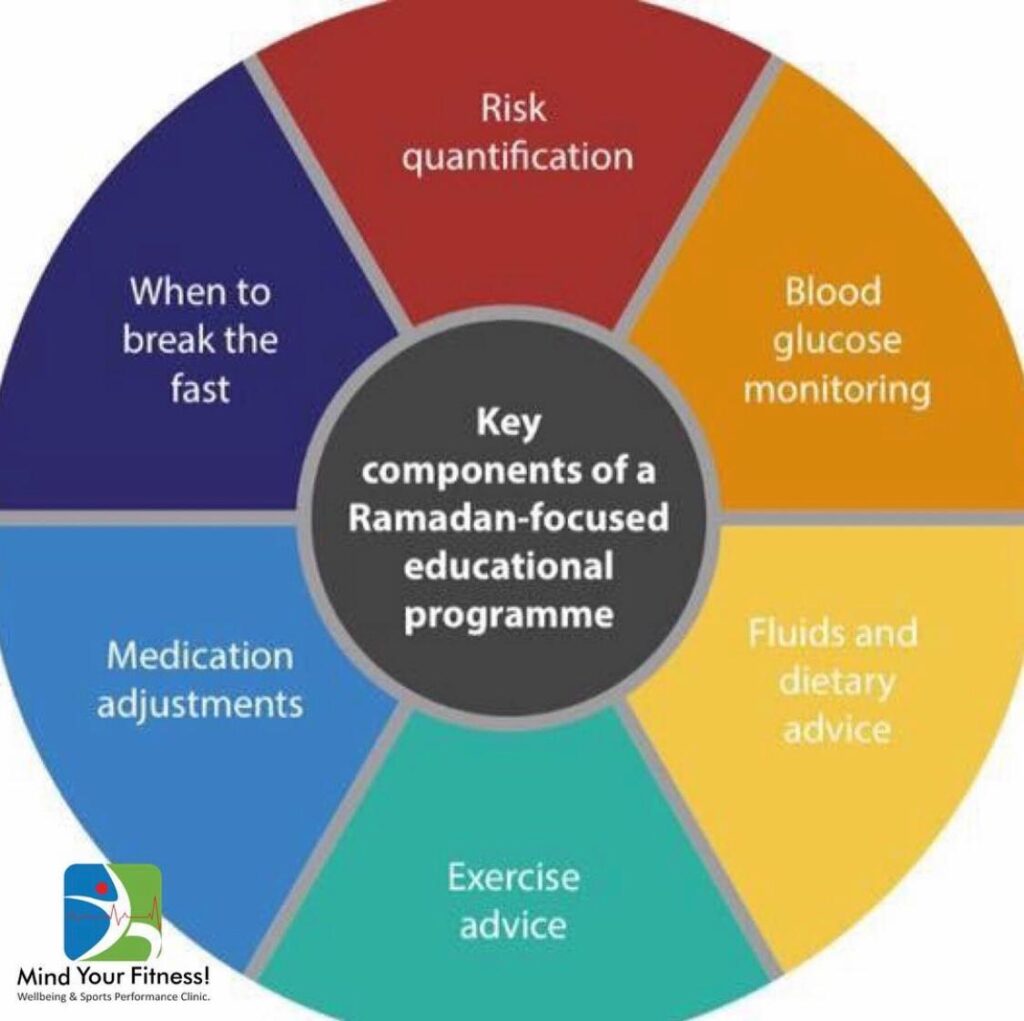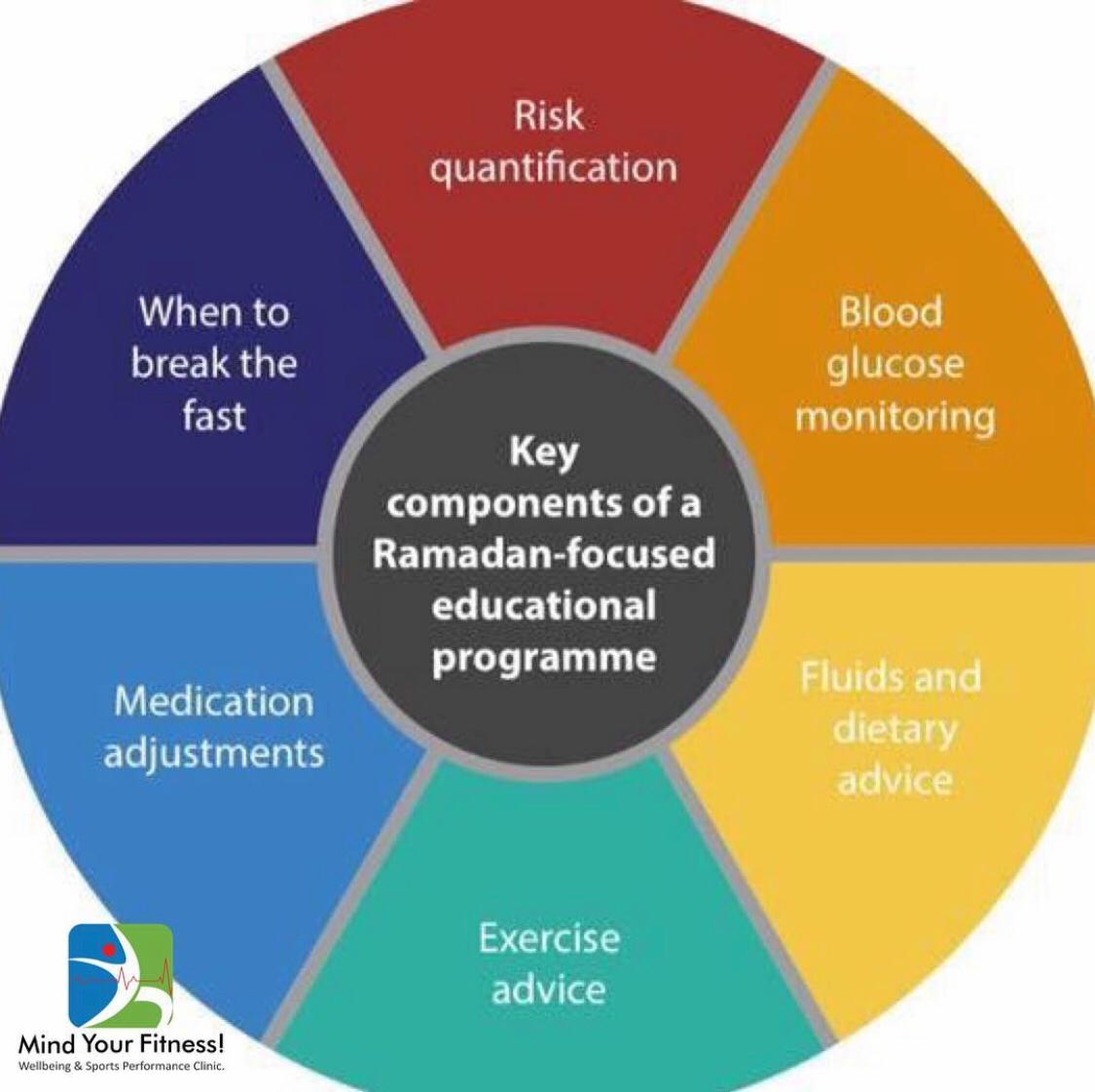
1. Risk quantification:
Ideally, all patients should attend a pre-Ramadan assessment (6–8 weeks prior) with their doctor. Patients who fall in the ‘very high’ and ‘high’ risk categories should not fast.
2. Glucose monitoring:
Self-monitoring of blood glucose (SMBG) is an essential component of diabetes care, this allows patients to better identify and prevent episodes of hypoglycaemia and hyperglycaemia. Your healthcare expert will guide you with the timings.
3. Fluid and dietary advice:
Keep well hydrated during non-fasting periods (2-3 L) with fluids like coconut water, thin buttermilk, soups, lemon water with salt (unless there is a salt restriction). Take 3-4 meals ensuring there is enough protein and fibre in each meal. You need to understand how to manage low blood sugar through the diet (amount and type of carbohydrate to be consumed until it is normal).
4. Exercise:
Although rigorous exercise is not recommended during fasting because of the increased risk of hypoglycaemia and/or dehydration, patients with diabetes should be encouraged to take regular light-to-moderate exercise during Ramadan.
5. Adjust medications:
In the pre-Ramadan assessment, the doctor will advise you about the dose, timing or the type of medication.
Patients should be able to recognise the symptoms of hypoglycaemia, to test their blood sugar when feeling unwell, and be prepared to break the fast if necessary (< 70 mg/dl).
Symptoms of low blood sugar: sweating, chills, headache, confusion.
Stay strong!
Shweta Bhatia, Registered Dieteitan, Mind Your Fitness!





